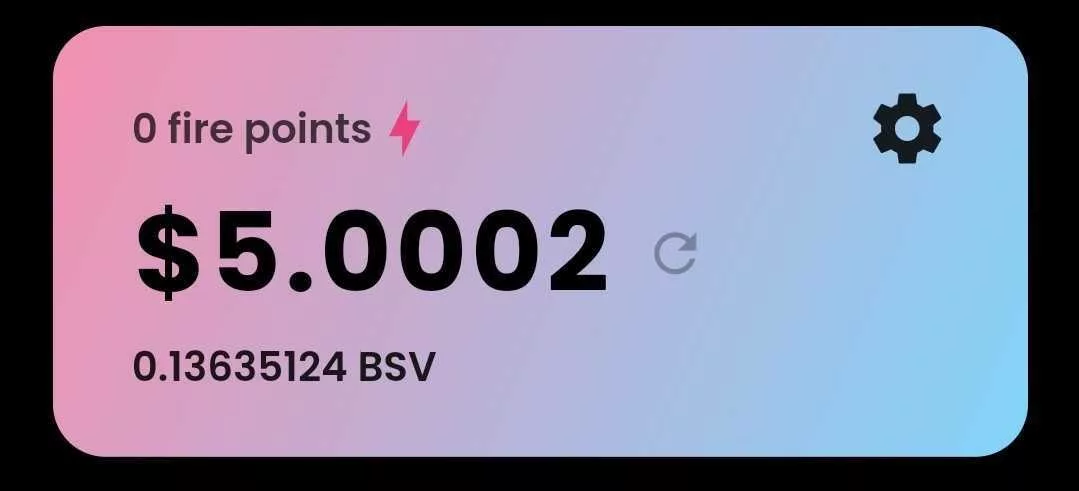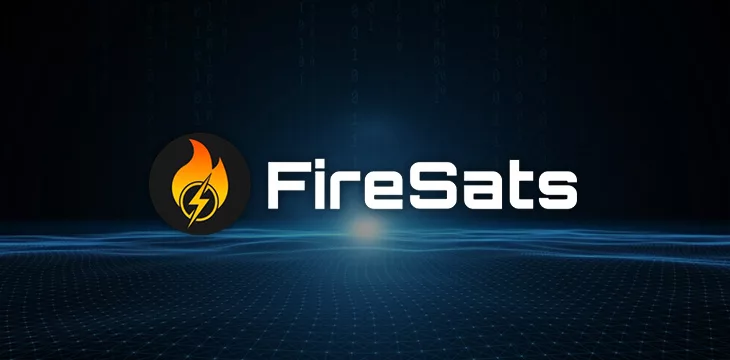|
Getting your Trinity Audio player ready...
|
FireSats, a new BSV, Web3 non-custodial wallet with full BSV-20 and 1 Sat Ordinals support, launched on Google Play (NASDAQ: GOOGL) in October 2023. iOS and web versions will be released soon. I caught up with the developer of FireSats, ArrorLab Arts, to learn more about their motivations for building the wallet.
Why did you create the FireSats wallet?
As a developer, I have always been driven to create and enhance projects that captivate me. Whenever I encounter something intriguing, my instinct is to envision how to contribute or improve upon it.
I devised the idea for FireSats during the 1Sat Ordinals boom in the BSV blockchain. I was working with Walter White on an NFT minting site a couple of months ago. I needed a mobile wallet that was easy to use and could reliably support 1Sat Ordinals. The existing mobile wallet that supported 1Sat Ordinals had a walled garden approach, making it hard for users to access the NFTs we sent them for transferring and trading. That’s when I decided to create FireSats to fill this gap.
Why implement smartphone application versions (Google Play, iOS) instead of a PWA?
I aimed for FireSats to be optimized and efficient in performance and UI/UX. Additionally, I wanted to leverage device-specific APIs provided by native SDKs as we plan to release features that may utilize device hardware, such as storage and sensors, in many different ways.
While I don’t oppose the concept of (Progressive Web Application (PWA), the device APIs are not as optimized and reliable at this point. That being said, the FireSats PWA public beta is now accessible at https://firesats.app, and you’re welcome to give it a try.
What are your general thoughts on BSV-20 as a fungible token protocol?
I find it to be excellent. For the first time in the BSV blockchain, we have a token protocol that enjoys support from various wallets, boasts interoperability, and benefits from the network effect of ‘The token protocol.’
Kudos to the 1Sat Ordinals team for a fantastic job. While it might not be the most superior in terms of technology, its wide acceptance in the BSV blockchain is more important. The 1Sat BSV-20 protocol can always adapt to BSV blockchain’s better scalability and VM.
Will there be any synergy with bsv20.fun?
No, FireSats will not have synergy with bsv20.fun. The token marketplace on bsv20.fun has been shut down, and the token transfer feature will remain available temporarily for users to import wallets and transfer BSV-20 tokens minted on 1satordinals.com and relayx.io.
How reliant is FireSats on the GorillaPool 1Sat Ordinals Indexer? How did that streamline the development of the wallet?
Currently, FireSats is fully reliant on the GorillaPool 1SatOrdinals Indexer. Retrieving inscription, metadata, and the global order book from the indexer significantly streamlined development. By leveraging this existing infrastructure, we eliminated the need to build an indexer from scratch, reducing the development time to just two weeks for the FireSats public beta.
I look forward to a more competitive environment in indexer infrastructure development, providing us with multiple choices in indexer APIs.

What are Fire Points?
Fire Points serve as a ranking mechanism for distributing profits among FireSats users. The greater the number of Fire Points a user has, the larger their share of the transaction fee earnings. Users who accumulate a certain threshold of Fire Points will gain access to premium features. Fire Points can be earned by locking NFTs from our upcoming official collection, set to launch very soon.
New Feature Alert 🚨
You’ll be earning rewards while you trade nfts and #BSV20 inside FireSats Wallet. 🔥⚡️
Trying to add a new layer of excitement and increase the economic activities inside the wallet.
Will be available in v1.6.0 pic.twitter.com/FG9aTjKyYJ
— FireSat (@FiresatWallet) October 13, 2023
How can users earn rewards in the app?
Users have the opportunity to earn rewards through various methods within the app. By locking NFTs and accumulating Fire Points, they receive rewards in the form of transaction fees. Furthermore, completing transactions provides users with digital scratch cards as experimental features in FireSats version 1.6.0. Although the Fire Points feature has not yet been rolled out, the digital scratch cards are operational, with ongoing efforts for continuous improvement.
In the Telegram group, you alluded to a Bitcoin Ad network with the ability for third parties to put ads in digital scratch cards. Could you elaborate on this concept?
The digital scratch card implemented in FireSats represents a foundational step towards a broader vision. Eventually, I aim to develop Bitcoin scripts that enable the locking of a certain amount of Bitcoins in UTXOs with accompanying content, ranging from advertisements to text, audio, or video. Transactions could then be spent by unlocking scripts that provide evidence of the consumption of that content.
Moreover, the unlocking logic could be refined to the extent that it only permits spending if the output contains a threshold amount of bitcoins, and the outpoint points to a specific platform address or the outpoint contains a specific platform signature, among other criteria. These attention UTXOs would be indexed and made available for anyone or any platform to incorporate into their products. This approach would create a scenario where each transaction on Bitcoin has the potential to earn rewards for Bitcoin users and can be utilized for signaling truth, opinions, marketing, and more.
How important are the non-custodial and no KYC aspects in terms of using Bitcoin wallets, in your opinion?
I believe it’s crucial to maintain a non-custodial approach in the Bitcoin world. One of the reasons Bitcoin stands out as a superior form of money compared to fiat is its enhanced ability for self-custody. The self-custodial nature also offers greater interoperability, a highly desired characteristic in the DeFi scenario. Additionally, there’s the significant risk of a single point of failure in the case of non-custodial Bitcoin, adhering to the principle that ‘not your keys, not your Bitcoin,’ with few exceptions.
As for KYC, I’m not entirely against it; however, I don’t perceive it as a necessity within FireSats. It acts as a potential roadblock to adoption and the growth of DeFi.
How are exclusive collections curated?
The exclusive collections consist of curated collections from the Minter at https://mint.imwalterwhite.xyz/, our trusted partner known as the White Minter. They launch collections after a review process, and these are the ones we list under exclusive collections.
What are your thoughts on Hodlocker and locking coins against content, in general?
I have mixed feelings about Hodlocker and locking coins in general. I acknowledge that individuals have the right to use their Bitcoins as they see fit, but in principle, locking coins temporarily removes them from circulation. This could be beneficial for corresponding fiat gains and increased demand, assuming there is demand (as low supply doesn’t necessarily boost demand).
However, this poses a challenge to the miner incentive model. When coins are taken out of circulation, and spending is discouraged, miners may not earn as much in fees, especially in a diminishing mining reward system. In a scenario where locking Bitcoin increases its fiat value, it should work, but in a scenario where fiat doesn’t exist, taking coins out of circulation could destabilize the mining incentive.
But I’m open to hearing counterarguments on this matter. As for holdocker.com, I don’t have strong opinions (anymore). I observe people using it, indicating they value content with Bitcoin locked in it. They seem to appreciate the signaling value of Bitcoin being held in this manner.
Thank you, ArrorLab Arts, for taking the time to answer my questions. I hope the readers learned more about FireSats. Get the app on Google Play now!
CoinGeek Roundtable: Locking coins and HODLocker with Joshua Henslee

 02-19-2026
02-19-2026 




